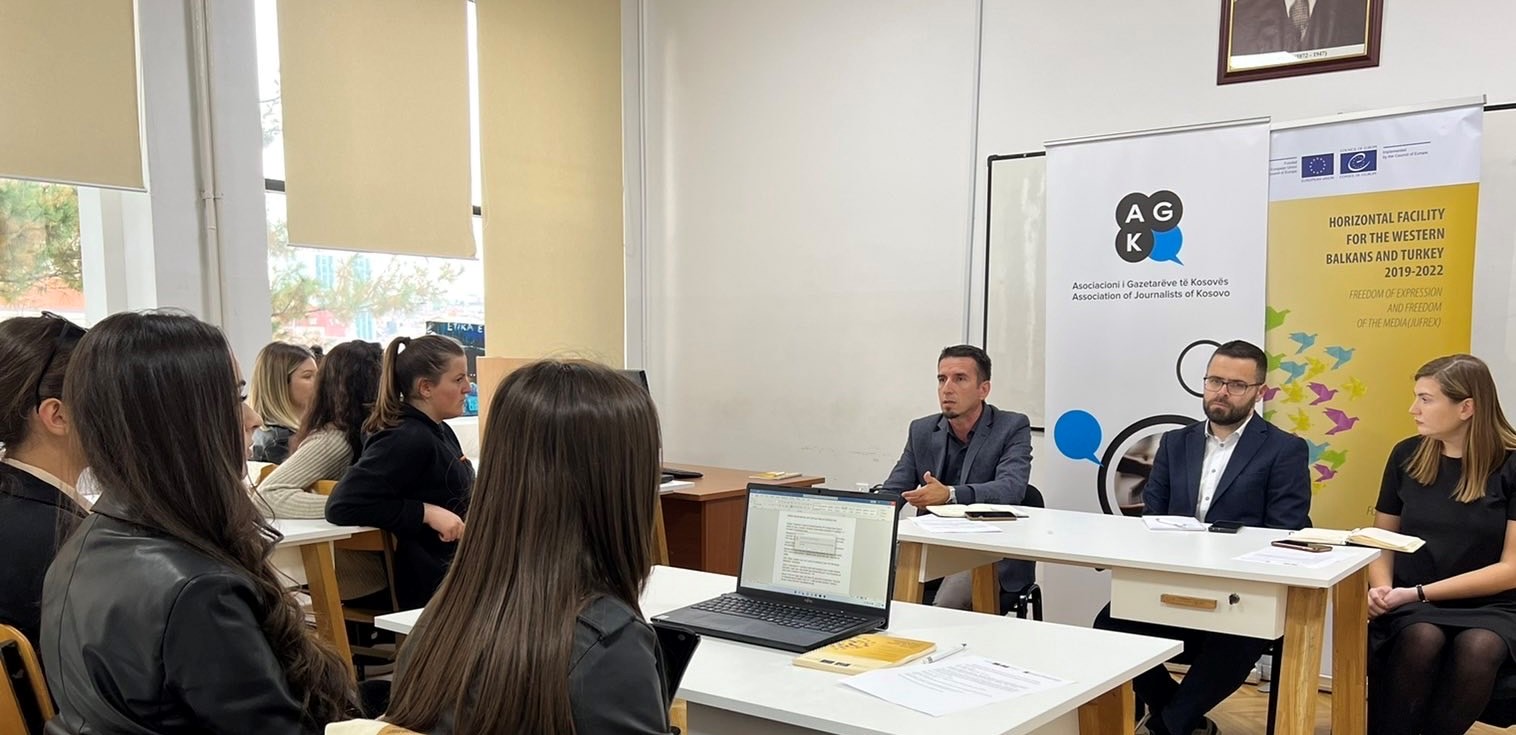Today, a lively discussion on the effects of the civil law against defamation and insult in journalism was successfully concluded with students of the Department of the Journalism from the University of Prishtina.
The focus of the discussion was the concepts of defamation and insult, as well as the role and responsibility of journalists and their protection from lawsuits. During the event, it was also discussed about the positioning of defamation in relation to the public debate and the chilling effect it can have on freedom of expression.
This discussion also marks the completion of the cycle of activities within the framework of the grant agreement between the EU/CoE action Freedom of Expression and Freedom of the Media #JUFREX and the Association of Journalists.
This initiative is conducted in the framework of the Action on Freedom of Expression and Freedom of Media, part of the Horizontal Facility II programme, a co-operation initiative co-funded by the European Union and the Council of Europe and implemented by the Council of Europe.





